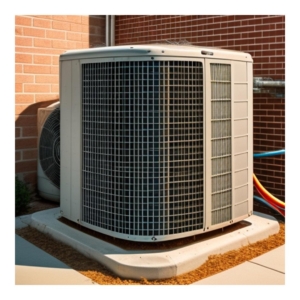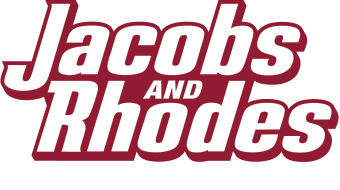Common HVAC Problems and How to Prevent Them

A well-functioning HVAC system is the backbone of a comfortable and harmonious living space. Beyond just providing the desired temperatures, its significance extends to the quality of the air you breathe and the cost-effectiveness of your energy consumption. Imagine a scorching summer day or a chilly winter evening – it’s the HVAC system that ensures you find respite indoors.
Not only does it regulate the temperature, but it also controls humidity levels, filters out impurities, and circulates fresh air. A properly maintained HVAC system not only enhances your immediate comfort but also contributes to the longevity of your home’s structure and your family’s well-being.
Let’s dive into some of the common problems HVAC systems can face and how to prevent them with proper maintenance and knowing the signs to watch out for.
Thinking maybe your system needs to be replaced and it’s too late to prevent problems? Check out our previous resource on: How to Know When It’s Time to Replace Your HVAC System.
Understanding Common HVAC Problems
Air Conditioning Issues
Air conditioning issues can quickly turn a comfortable haven into an uncomfortable ordeal.
The first sign, insufficient cooling or uneven temperature distribution, can create frustrating hotspots in your home, rendering certain areas unbearable while others remain chilled.
Frequent on/off cycling not only disrupts the desired climate but also places undue stress on your AC system, potentially leading to premature wear and tear.
However, perhaps the most concerning is the presence of airflow problems and reduced air quality. A compromised AC system can struggle to circulate air effectively, allowing dust, allergens, and pollutants to linger, causing discomfort and potential health issues for you and your family.
Heating Problems
Heating systems can encounter a range of issues that affect their performance and comfort-providing capabilities. One prevalent problem is inadequate heating or uneven warmth distribution throughout the living space. This might be due to clogged filters, faulty thermostats, or malfunctioning heating elements. Additionally, the emergence of strange noises from the furnace or boiler can indicate underlying problems, such as worn-out components, loose parts, or even air duct issues. Addressing these noises promptly can prevent further damage and maintain a peaceful indoor environment.
Pilot light or ignition control problems are also common culprits behind heating malfunctions. A flickering or extinguished pilot light can result from thermocouple issues or gas supply problems in gas-powered systems, while ignition control failures can hinder the heating process entirely. These problems require swift attention to ensure not only comfort but also safety, as gas-related issues can potentially pose risks.
Regular maintenance, attentive troubleshooting, and professional inspections play crucial roles in preventing these issues, ensuring a consistent and reliable heating system operation.
Energy Efficiency Concerns
Energy efficiency is a critical aspect of HVAC systems that can significantly impact both environmental sustainability and household budgets. High energy bills attributed to system inefficiencies are a common concern. These inefficiencies can result from various factors, including outdated equipment, improper sizing, or lack of regular maintenance. Such issues lead to excessive energy consumption and strain on resources.
Another key consideration is the effect of poor insulation and inadequate sealing on HVAC performance. Insufficient insulation in walls, ceilings, and floors can cause heat loss during winter and heat gain during summer, forcing HVAC systems to work harder to maintain desired temperatures. Similarly, air leaks due to poorly sealed windows, doors, and ducts can compromise the system’s efficiency by allowing conditioned air to escape and unconditioned air to infiltrate. This not only impacts comfort but also places additional stress on the HVAC unit.
Investing in proper insulation, regular maintenance, and sealing gaps can result in substantial energy savings, lower utility bills, and reduced environmental impact. By addressing these common problems, individuals can enhance the overall performance and longevity of their HVAC systems while contributing to a more energy-efficient and sustainable living environment.
Causes Behind HVAC Problems and the Solutions
HVAC problems can arise from a combination of factors, often stemming from various aspects of system design, usage, and maintenance.
Some of those factors are:
- Aging Components and equipment wear are common contributors, as prolonged usage can lead to the degradation of crucial parts.
- Inadequate Maintenance practices, such as neglecting regular filter changes, cleaning, and inspections, can accelerate wear and tear.
- Improper Installation or sizing of HVAC systems can result in inefficiencies and reduced performance from the outset.
- Environmental Factors, such as dust, debris, and humidity, can accumulate over time, affecting system functionality.
- Electrical Issues, like faulty wiring or disrupted power supply, may disrupt the proper functioning of electronic components.
- External Factors, such as extreme weather conditions, can put undue stress on HVAC units.
The solution to many of these common HVAC problems and ensure the smooth operation of heating and cooling systems are:
- Scheduled maintenance and that it is a foundational strategy, involving routine professional inspections that detect and address issues before they escalate.
- Adhering to a seasonal maintenance checklist enables targeted care during different weather conditions.
- Regular air filter maintenance is essential to prevent clogs, promote efficient airflow, and maintain indoor air quality.
- Proper home insulation and sealing play a pivotal role in enhancing HVAC efficiency by minimizing heat exchange with the surroundings and eliminating air leaks.
Employing these preventive measures empowers individuals to proactively safeguard their HVAC systems, promote energy efficiency, and extend the lifespan of their equipment.
Conclusion
The HVAC system is more than just a temperature regulator; it’s the cornerstone of a comfortable and balanced living environment. Its role goes beyond creating the desired indoor climate – it’s responsible for ensuring clean air and efficient energy use. Whether you’re facing scorching summer days or chilly winter evenings, the HVAC system serves as your refuge.
Aside from temperature control, the HVAC system manages humidity levels, filters out impurities, and circulates fresh air. Maintaining this system not only boosts immediate comfort but also contributes to the structural durability of your home and your family’s well-being.
We’ve delved into the typical problems that HVAC systems encounter – From inadequate cooling to uneven warmth distribution, the system can face challenges. Promptly addressing these issues is key to preventing further damage.
Energy efficiency is crucial for both the environment and your budget. Inefficiencies can result from outdated equipment, incorrect sizing, or inadequate maintenance, leading to higher energy bills. By investing in proper insulation, regular maintenance, and sealing gaps, you can significantly reduce energy consumption, lower utility bills, and decrease your environmental footprint.
HVAC issues arise from a mix of factors, encompassing system design, usage, and maintenance. Components can degrade over time, inadequate maintenance can accelerate wear, and improper installation can lead to inefficiencies. External factors like dust, debris, humidity, and extreme weather can also impact the system.
The solutions lie in scheduled professional inspections, seasonal maintenance checklists, regular air filter upkeep, and proper insulation and sealing. By taking these preventive steps, you hold the power to safeguard your HVAC system, promote energy efficiency, and extend the longevity of your equipment.
Remember, Jacobs and Rhodes is available 24/7 should you need help with your HVAC system. Scheduling a service visit is easy by either calling ((509) 783-3121) into dispatch or scheduling online.

 Jacobs and Rhodes
Jacobs and Rhodes Jacobs and Rhodes
Jacobs and Rhodes